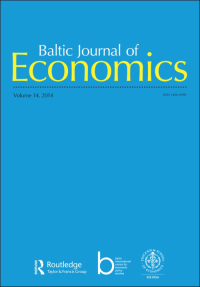Fialová, Kamila, Mysíková, Martina. 2021. „Do low minimum wages disserve workers? A case study of the Czech and Slovak Republics“. Baltic Journal of Economics. 21 (1): 43-59. ISSN 1406-099X. [cit. 29.04.2021]Available from: https://www.tandfonline.com/doi/full/10.1080/1406099X.2021.1917844
This article analyses the effects of minimum wage on employment in the Czech and Slovak Republics based on 2005–17 EU-SILC data. Our results contribute to the scant literature on minimum wage effects in the Central and Eastern European (CEE) region. While prior empirical findings concurred with the effects of minimum wage on labour market outcomes in CEE countries when the minimum wage is relatively high, there is ambiguity when the minimum wage is relatively low. In Slovakia we find that regular minimum wage hikes had insignificant effects on employment. Similarly, we find no negative employment consequences from irregular hikes in the comparatively low minimum wage (MW) of the Czech Republic. Moreover, the groups assumed to be most affected by MW hikes did not experience greater negative consequences following hikes when compared to the overall population of workers in either country.
Department
Topics
Economy, Wages and Incomes, Work
